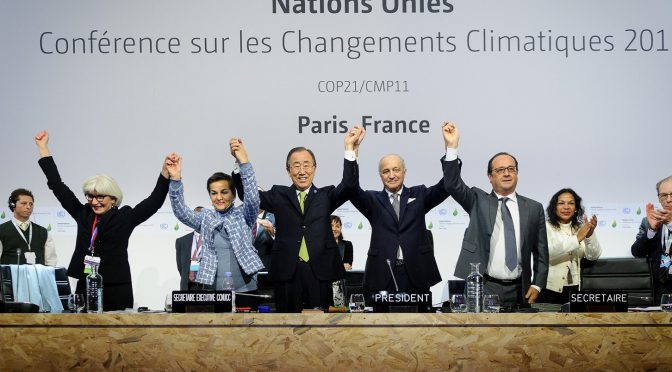U.N. Secretary General Ban Ki-moon announced last week that the 2015 Paris climate change accords will, in all likelihood, go into effect this year. These accords commit the U.S. and dozens of other nations to try to lower greenhouse gas emissions to mitigate climate change.
But devising multilateral agreements is painstaking work. Typically, negotiators from hundreds of states deliberate for many years. Any agreement they reach often involves major compromises, which means provisions that experts consider important tend to be watered down
Nowhere is this more apparent than the case of the Paris Climate Change Accords. To break decades of multilateral gridlock on climate change, negotiators followed the mantra don’t let the perfect be the enemy of the good.
But is there a cost to being flexible?
Strong words make treaties more effective. So is the Paris climate accord worded too flexibly?
Katerina Linos and Tom Pegram
Washington Post-The Monkey Cage, 29 September 2016.




